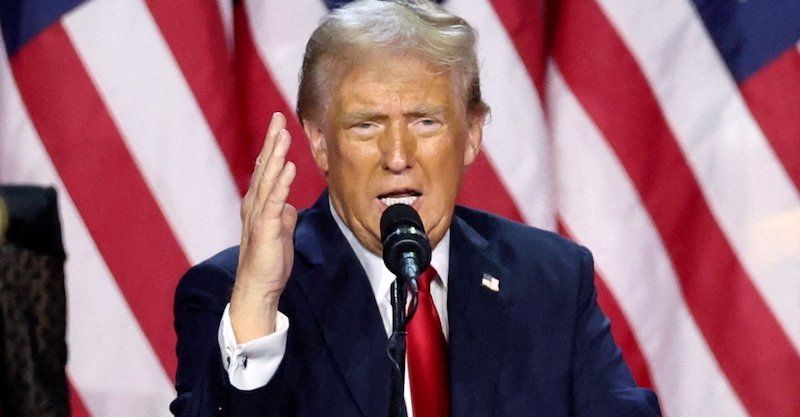President Donald Trump, infuriated at Harvard University's refusal to capitulate to his demands to crack down on protest, is now plotting the nuclear option — go after the school's tax-exempt status, which would wreck the ability of the school to fundraise.
But in doing so, he is opening up a Pandora's Box that his own party would live to regret, Conor Clarke warned in an analysis for The Atlantic published on Friday.
"What is the rationale for the IRS revisiting Harvard’s exemption status? A theory is needed, because section 501(c)(3) of the federal tax code says that an organization 'shall' — not 'may' — be exempt from taxation if it meets criteria listed in the statute," he wrote.
"One of those criteria is for an institution to be organized exclusively for 'educational purposes. The Trump administration — which shoots first and theorizes later — has not said much. But an intellectual agenda has been building recently to challenge the exempt status of universities and other organizations viewed as left-leaning."
One possible way they could try to argue for it in court is a novel use of the 1983 Supreme Court case Bob Jones University v. United States, Clarke argued, in which the justices allowed a far-right fundamentalist South Carolina school to be stripped of its tax-exempt status for denying admission to applicants in interracial marriages.
The court found that the tax exemption criteria for a school holds, provided “that its activity is not contrary to settled public policy.”
Since then, the IRS has not tried to exercise the use of that "settled public policy" qualifier for any other school — but if Trump went after Harvard on these grounds for not following what he deems to be "settled public policy," it would open an entirely new can of worms and give presidents a wild new level of power to pick and choose who gets tax exemption based on their politics.
Indeed, Clarke noted, the whole case was shoddily written from a conservative textualist point of view: "The lone holdout in that lopsided 8–1 Bob Jones result was none other than William Rehnquist, an early hero to the modern conservative legal movement. Rehnquist’s dissent makes a point that should still resonate with today’s conservative majority on the Court: Aligning the tax code with national policy goals is Congress’s job — not the Court’s, and not the executive branch’s. Bob Jones’s discriminatory practices might have been odious, but the school was also obviously an 'educational' institution under the plain language of the statute. That statute, moreover, was not the kind of document that oozed with administrative discretion. It was, as Rehnquist put it, the kind of law in which Congress itself 'explicitly defined the requirements' for exempt status."
"Despite its practical obsolescence, of course, Bob Jones still remains the law of the land — lying around like a loaded weapon for an executive branch willing to overlook its flaws," Clarke concluded. "But there are good reasons that it has never been picked up before. Conservatives, more than anyone, should oppose its impetuous new use."
Leave a Comment
Related Post
